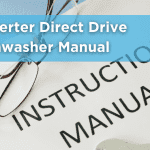Table of Contents
If your hot water heater isn’t working, it can be frustrating, especially when you need hot water for a shower or washing dishes. So, why is my hot water heater not working? In this guide, we’ll explore common reasons your water heater might stop working and provide simple troubleshooting steps to help you get it up and running again. Let’s dive in! 🔧
Common Reasons Why Your Hot Water Heater Isn’t Working
There are a few common reasons why a hot water heater might not be providing hot water. Let’s look at some of them:
1. No Power or Gas Supply ⚡
The first thing to check is whether your water heater has power or gas supply.
For Electric Water Heaters:
- Check the Circuit Breaker: Sometimes, the circuit breaker may trip, cutting off power to your water heater. Reset the breaker and see if it starts working again.
- Check the Heating Elements: If the breaker isn’t the issue, the heating elements inside the tank might be faulty. These may need replacement by a professional.
For Gas Water Heaters:
- Check the Gas Supply: Make sure your gas supply is on. If you recently ran out of gas, that could be the issue.
- Pilot Light: If you have a gas water heater, check if the pilot light is on. If it’s out, relight it according to the manufacturer’s instructions.
2. Thermostat Issues 🌡️
If your thermostat is set too low or malfunctioning, it might not be heating the water properly.
- Check the Thermostat Settings: Most water heaters should be set to around 120°F (49°C). If it’s too low, increase the temperature setting.
- Test the Thermostat: If the thermostat is broken, it may need to be replaced. A faulty thermostat will prevent your water heater from heating water to the right temperature.
3. Sediment Build-Up 💧
Over time, sediment can build up at the bottom of your water heater tank, especially if you have hard water. This can block the heating elements, making it harder for your water heater to work.
- Flush the Tank: Flushing your water heater once a year can help remove sediment buildup. You can either do this yourself (if you’re comfortable) or hire a professional to handle it.
4. Faulty Heating Elements 🔥
If your water heater is electric, it has heating elements that heat the water. If one or both of these elements are faulty, your water heater won’t heat water effectively.
- Test the Heating Elements: You can use a multimeter to test if the heating elements are working properly. If they’re defective, they will need to be replaced.
5. Leaking Tank 💦
If you notice water pooling around your water heater, it might be leaking.
- Inspect for Leaks: Check the tank for visible cracks or leaks. If you find one, your tank may need to be replaced. A leak can reduce the efficiency of your water heater and may lead to more serious damage.
6. Wrong Sized Water Heater 🛁
If you’re running out of hot water quickly, your water heater might be too small for your household’s needs. This can happen if you have more people using hot water or you’ve added appliances that use hot water, like a dishwasher or washing machine.
- Consider Upgrading: If your water heater is too small, consider upgrading to a larger model that can handle your household’s demands.
Troubleshooting Your Water Heater: Step-by-Step
Step 1: Check the Power or Gas Supply
- Ensure the water heater has electricity or gas. Reset the circuit breaker or relight the pilot light.
Step 2: Inspect the Thermostat Settings
- Make sure the thermostat is set correctly. If necessary, test and replace the thermostat.
Step 3: Flush the Tank
- Flush the tank to remove any sediment buildup. This can improve the efficiency of your water heater.
Step 4: Examine the Heating Elements
- For electric heaters, test the heating elements using a multimeter. If they’re broken, replace them.
Step 5: Look for Leaks
- Check for water around the tank. If you find leaks, the tank may need replacing.
When to Call a Professional 🛠️
If you’ve gone through these steps and your hot water heater still isn’t working, it may be time to call a professional. Common issues like broken thermostats, faulty heating elements, or leaks often require expert knowledge and tools to fix safely. A professional plumber or HVAC technician can inspect your unit, diagnose the problem, and carry out the necessary repairs or replacements.
Conclusion
So, why is my hot water heater not working? There are several possible reasons, including power issues, thermostat problems, sediment buildup, and faulty heating elements. By following the troubleshooting steps in this guide, you can often solve the problem yourself. However, if the issue persists, don’t hesitate to call a professional to ensure your water heater is working efficiently and safely. 🔥🚿




